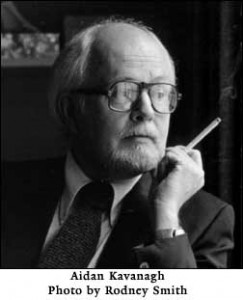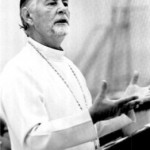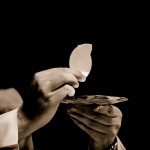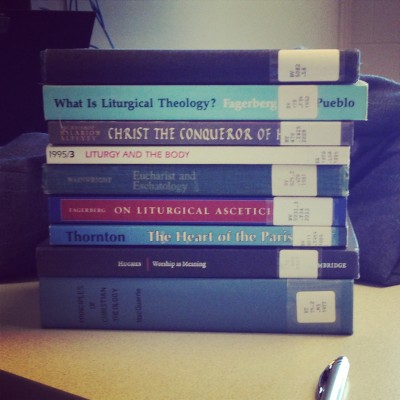Fr. Aidan Kavanagh was a professor at Notre Dame and Yale, a Benedictine monk, and one of the world’s leading scholars in liturgical studies and liturgical theology. Kavanagh died in 2006 at the age of 77 and a beautiful obituary published by Yale can be read here. Amongst many other accolades, he was the first Roman Catholic to serve as the Dean of Yale Divinity School (1989-1990) and his works have profoundly influenced my thinking and research.
Fr. Kavanagh is perhaps most known for his book, On Liturgical Theology, his vast and prolific writing corpus, and his research on the sacraments of initiation (Baptism, Confirmation, and Eucharist), liturgical studies, and a pioneer in liturgical theology alongside Fr. Alexander Schmemann.
When last we left Fr. Kavanagh in chapter 1 of On Liturgical Theology, he had been writing on the centrality and primacy of liturgy within the life of the church. He then moves into a lengthy conversation about the life of the academician and the growing chasm between parish and academe, between faith and theology. Kavanagh points out that originally theology was highly pastoral and located within the life of the parish or catechetical school rather than the universities. He writes:
“Only three ‘world class’ theologians during the first five or six centuries were not episcopal pastors: Tertullian, Origen, and Jerome. The inference that can be drawn from this is that theology was then regarded as a necessarily and intimately pastoral task, something regularly done by servants of the community, done live and in its solemn if often rowdy presence. The theology we today call patristic was thus a profoundly pastoral theology in its ambience, purpose, and execution,” (p. 18).
Many ecumenical thinkers, writers, and theologians today are engaging in a ressourcement or return to biblical and patristic sources, reengaging with the texts and beliefs of the early church as normative for faith and discipleship. That’s a very thin definition of ressourcement but look what Fr. Kavanagh says about such a return: it is a return to pastoral theology, to something done in, with, and through the church. We should all strive to be theologians in service of the church!
Fr. Kavanagh, like other liturgical theologians, believed liturgy to be normative for both the church and the world. Further, liturgy becomes the “vortex of entanglement” of God, church, and the world. “For Christian worship in its integrity is nothing if not both worldly and ecclesial…The possibility that liturgical worship, an endeavor both worldly and ecclesial, it itself fundamental to and constitutive of the faithful community and also of the ways in which that community reflects upon itself theologically,” (p. 21-22).
I’ll leave you with this little gem and offer no comment, it’s that good. I tweeted this quote earlier and may have started a Twitter-war between friends! “Christian asceticism, like the prospect of hanging, concentrates the mind and clears the head,” (p. 12). Anyone interested in asceticism should read David Fagerberg’s, On Liturgical Asceticism.
Next week we shall turn our attention to chapter 2, “The World.”












